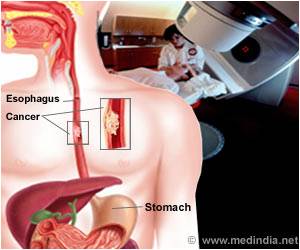Study reveals new noninvasive test for colorectal cancer screening demonstrated high sensitivity for detecting colorectal cancer.

Lidgard and colleagues analyzed 1,003 patient samples from 36 study sites and developed an analytic algorithm for the novel, automated stool DNA-based test platform, which generated a positive or negative result for each patient. The specimens were collected either before colonoscopy bowel preparation in screening and surveillance patients or at least seven days post-colonoscopy from patients with colorectal cancer and large precancers.
The control group included 796 patients with negative colonoscopies or small polyps (less than 1 cm), and the case group included 207 patients with confirmed colorectal cancer or precancers.
"By analyzing samples with confirmed diagnoses from colonoscopy, we were able to build an analytic algorithm that combines our 11 stool-based biomarkers into a single result," Lidgard said. "Through this study, we were able to demonstrate a high detection rate for both cancers and precancers using our automated analytic platform and algorithm."
The researchers reported that the test detected 98 percent of all cancers as well as 83 percent of precursors with high-grade dysplasia and 57 percent of precursors 1 cm or larger overall, at 90 percent nominal specificity.
"We are encouraged by the results of this study for detecting cancer and cancer precursors, especially the precursor lesions with high-grade dysplasia, an abnormality broadly recognized as being associated with a higher risk for progression to cancer itself," Lidgard said. "Current screening tests using only fecal occult blood are biologically limited in their ability to detect precursors to colorectal cancer."
Advertisement












